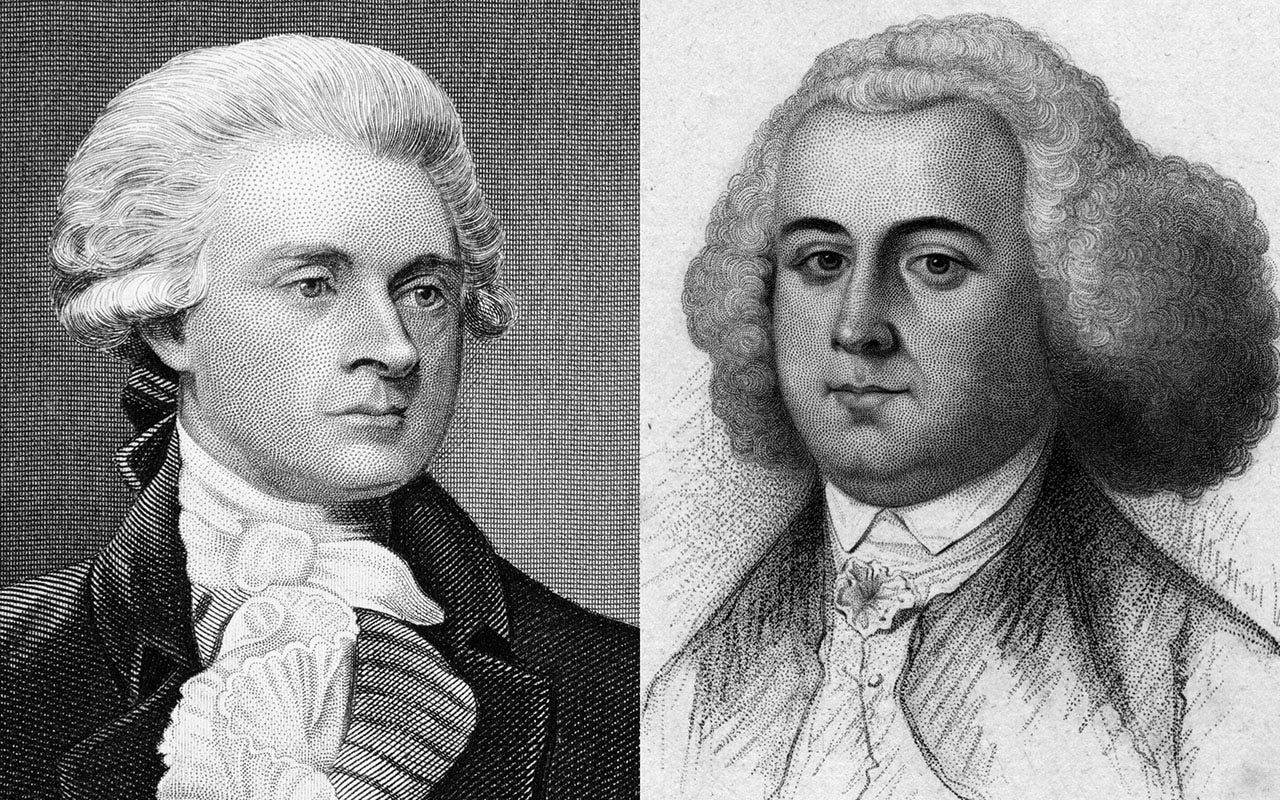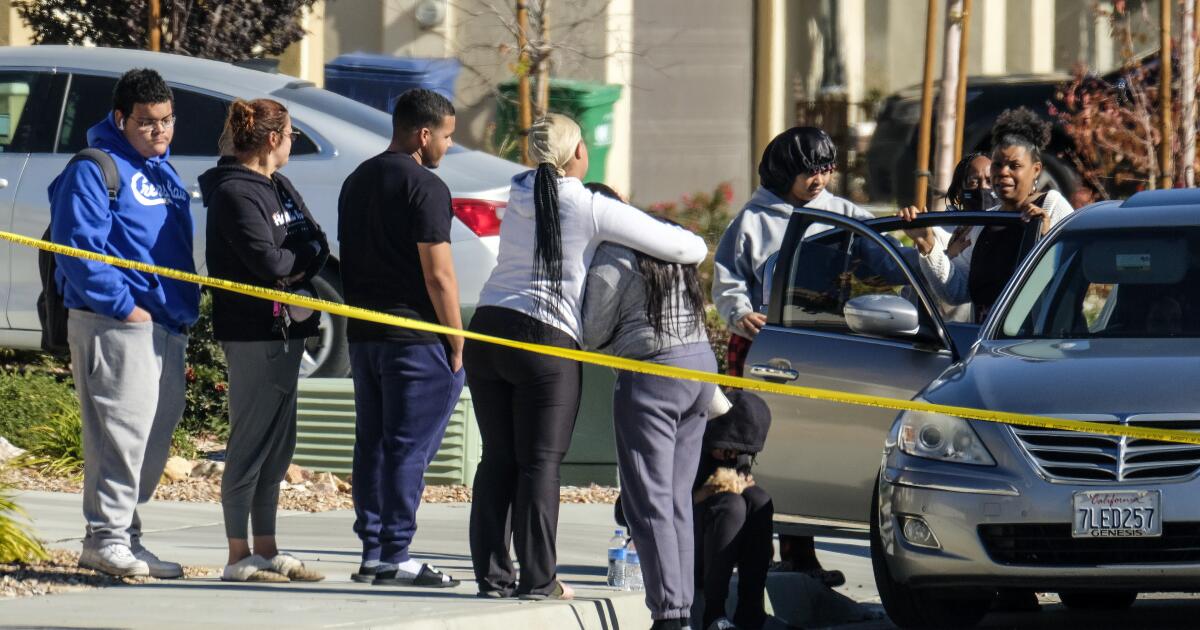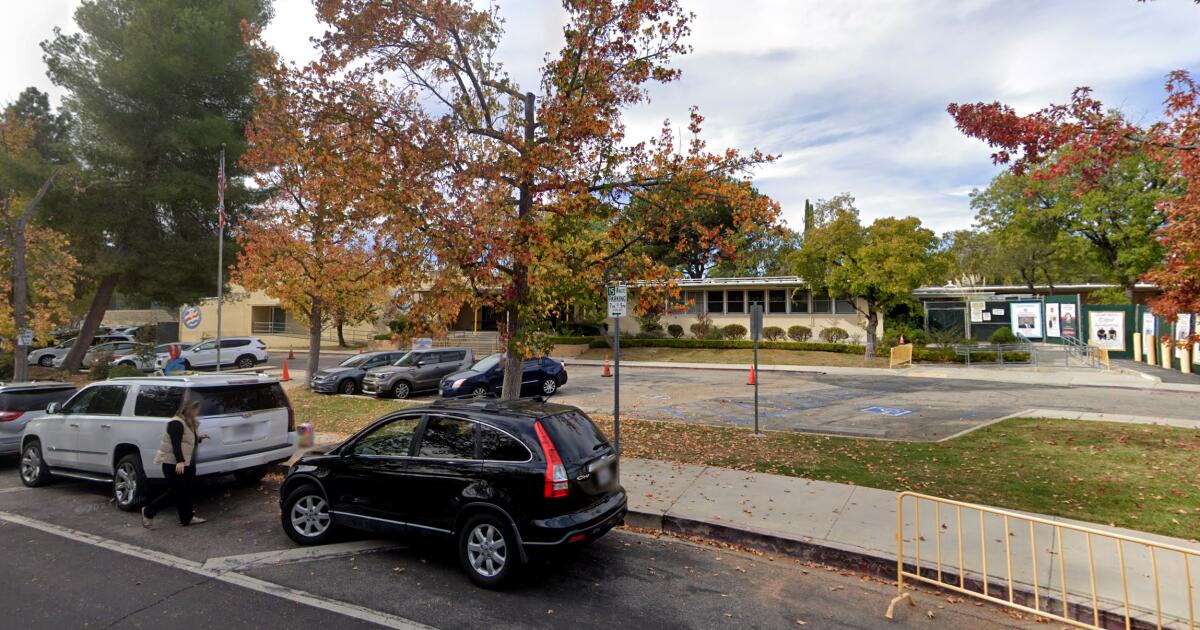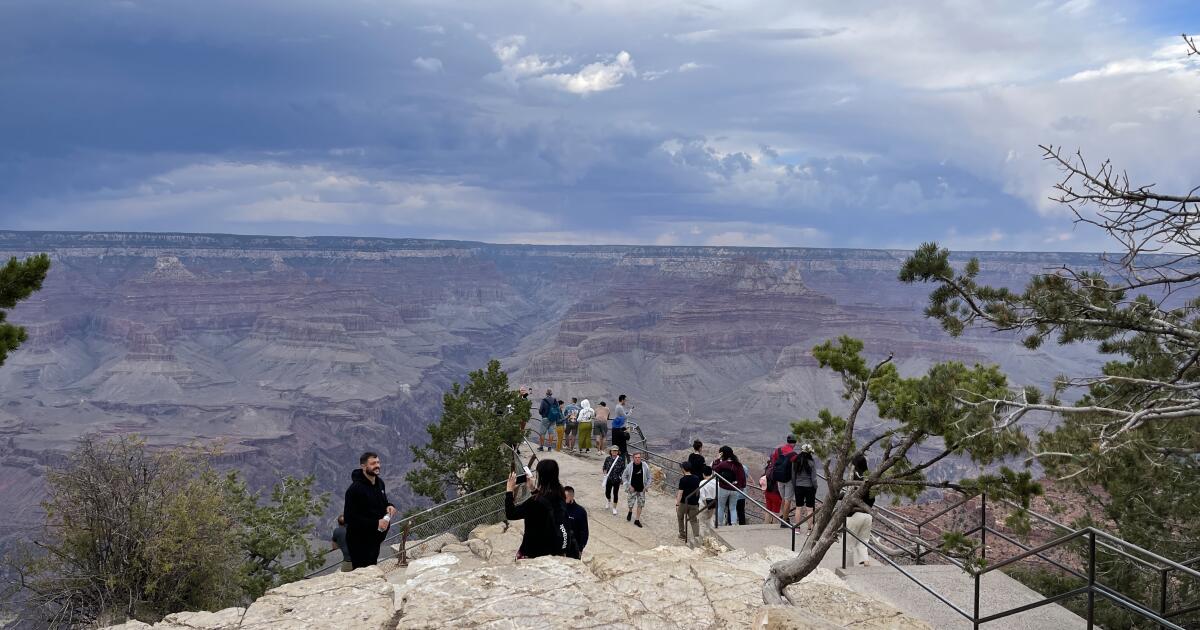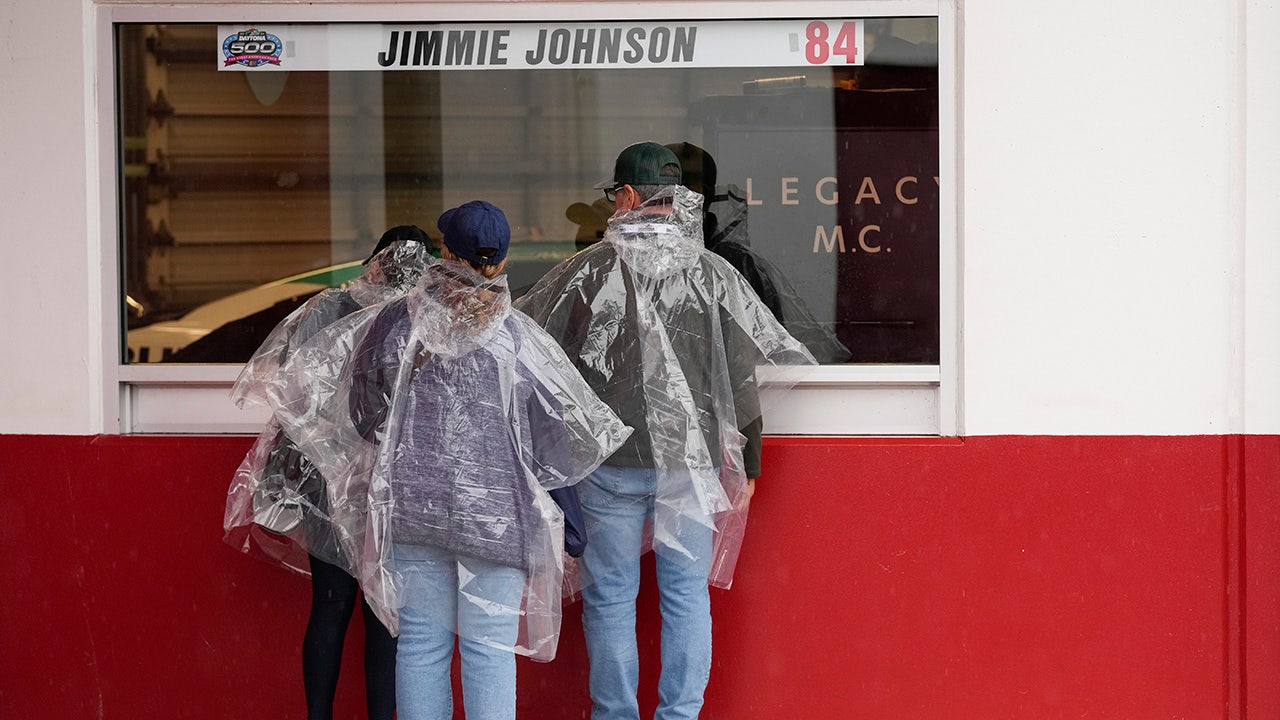Thomas Jefferson was elected the third president of the United States, after a deeply divisive race against John Adams that threatened to tear the young nation apart, on this day in history, February 17, 1801.
It was the first American presidential race to pit party rivals (Federalist Adams against Democratic-Republican Jefferson) and the first to unseat a sitting president.
“By early 1799, both parties, Republican and Federalist, were convinced of the other's determination to subvert the government and overthrow the Constitution,” Thomas Jefferson's Monticello writes in his online account of the election.
ON THIS DAY IN HISTORY, FEBRUARY 16, 1968, THE FIRST CALL IS PLACED TO 911, THE EMERGENCY SYSTEM PROMPTED BY A SHOCKING MURDER
The election was underscored by shocking accusations of flawed votes, a politically partisan media and even ominous threats of civil war, showing that little has changed in American presidential politics in more than 200 years.
Jefferson himself called the election “The Revolution of 1800.”
Challenger Thomas Jefferson (left) defeated President John Adams in the bitterly divisive election of 1800. The two men were allies in the cause of freedom and political enemies in the new nation, but they developed a warm friendship in later life. Portrait of Jefferson: Photograph by Kean Collection/Getty Images. Portrait of Adams: Smith/Gado/Getty Images Collection. (Getty Images)
He first defeated President Adams in the electoral college in the fall of 1800.
Jefferson became chief executive in place of his party ally Aaron Burr only after a whopping 36 votes in the House of Representatives that followed the general election.
“By early 1799, both parties…were convinced of the other's determination to subvert the government and overthrow the Constitution.” — Monticello
Thousands of people reportedly gathered in the streets of Washington, D.C., as political drama escalated in Congress, with Federalists seeking ways to block Jefferson's presidency.
The Virginian was inaugurated president, with Burr as vice president, on March 4.
CRISIS ON UNIVERSITY CAMPUS: WHAT UNIVERSITY PRESIDENTS CAN LEARN FROM THE FOUNDING FATHERS
Just three years later, Burr, in 1804, the sitting vice president of the United States, shot and killed his political rival and Adams ally, Alexander Hamilton, in a duel that seemed to presage a tragic trajectory ahead for the United States.
Hamilton had previously written that the election of 1800 was a contest to save the new nation from “the fangs of Jefferson.”
Smithsonian Magazine said of the election in 2004: “Just a quarter-century after the signing of the Declaration of Independence, the first elections of the new 19th century took place in an era of intensely emotional partisanship among a people deeply divided along “about the scope of government authority.”
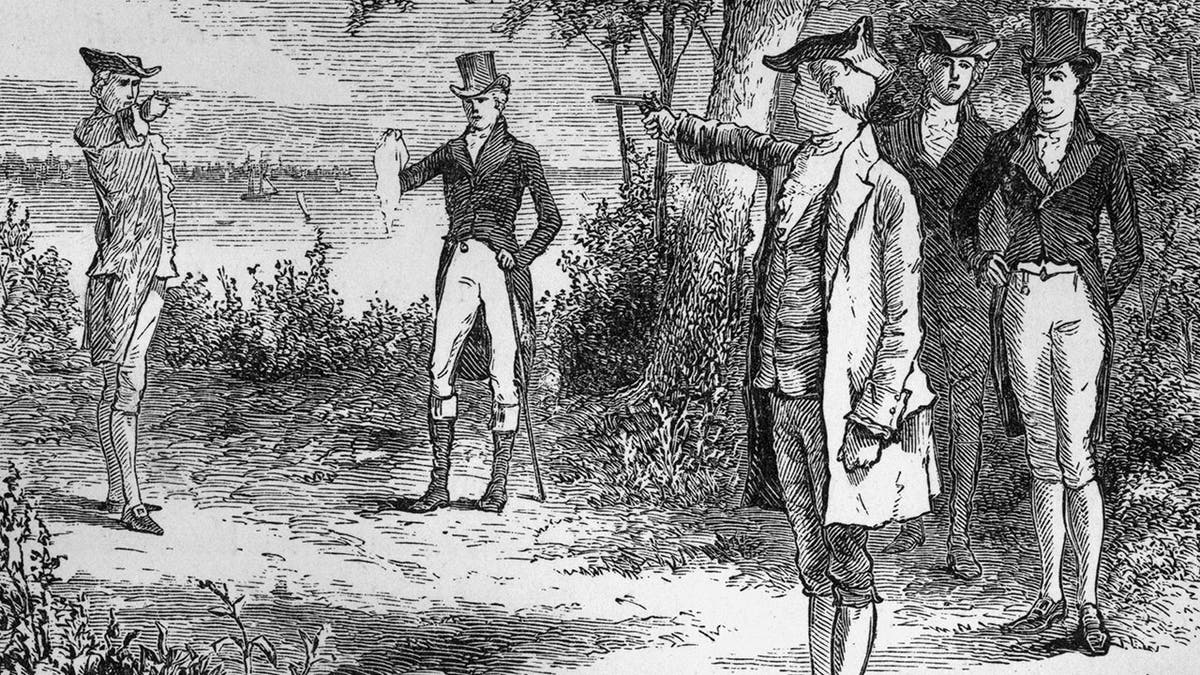
The American politicians Alexander Hamilton (1757-1804) and Aaron Burr (1756-1836) signed up in 1804 for the duel that would end Hamilton's life in Weehawken, New Jersey. (Hulton Archive/Getty Images)
President George Washington had warned against the corrosive potential of rising political factions during his farewell address in September 1796.
“However [political parties] “may from time to time serve popular ends, they are likely in the course of time to become potent engines by which cunning, ambitious, and unprincipled men will be able to subvert the power of the people,” Washington said.
ON THIS DAY IN HISTORY, DECEMBER 16, 1791, THE BILL OF RIGHTS WHICH CODES UNIQUE FREEDOMS IN THE NEW NATION IS RATIFYED
It only took one election cycle for the political parties to destroy the Founding Fathers.
Jefferson and Adams were intellectual allies in the rebellion.
The combination of each man's incredible intellect forged the philosophical foundation of the American Revolution.
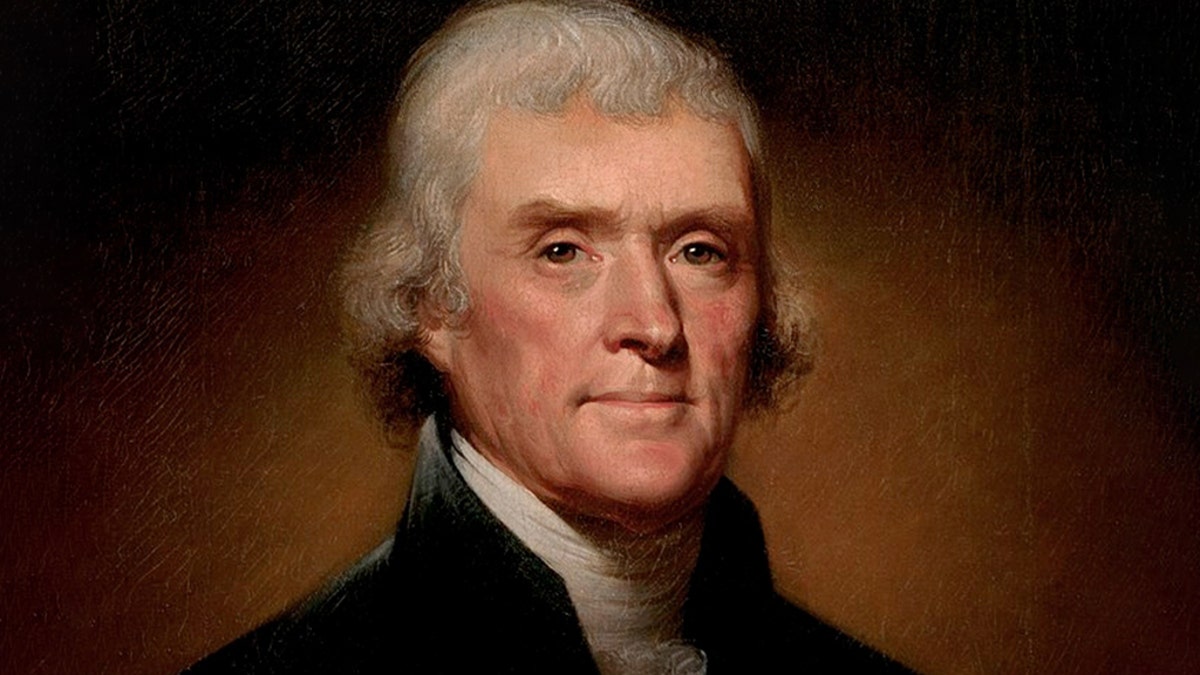
Cropped image from the official presidential portrait of Thomas Jefferson (by Rembrandt Peale, December 31, 1799). (Public domain)
They gave the world the Declaration of Independence, inspired hopes for freedom around the world, and reformed the people's relationship with the government for the better.
However, they proved to be fierce enemies in the new nation.
“A civil war or the surrender of independence is not more than twelve months away,” the Federalist William Cobbett, under the pseudonym Peter Porcupine, ominously wrote as divisions grew during Adams' presidency in the late 1990s. 1790.
“A civil war or the surrender of independence is not more than twelve months away.” —William Cobbett, political expert in the 1790s
Voters fought along partisan lines, particularly differences over the French Revolution, the United States' quasi-war with France, and Adams's Alien and Sedition Acts, widely perceived by historians as a black mark on the otherwise incredible, and the brilliant political mind of Adams.
American voters were also divided regionally.
ON THIS DAY IN HISTORY, NOVEMBER 1, 1800, JOHN ADAMS BECOMES THE FIRST PRESIDENT TO LIVE IN THE WHITE HOUSE
New Englanders supported Adams and the Federalists.
Southerners supported Jefferson and the Democratic-Republicans. The Mid-Atlantic States were divided: what we might now call “purple states.”
However, the American people overcame the division.
Jefferson succeeded Adams as president, marking the first of many peaceful transfers of power between parties in the United States, and one of the first in human history.
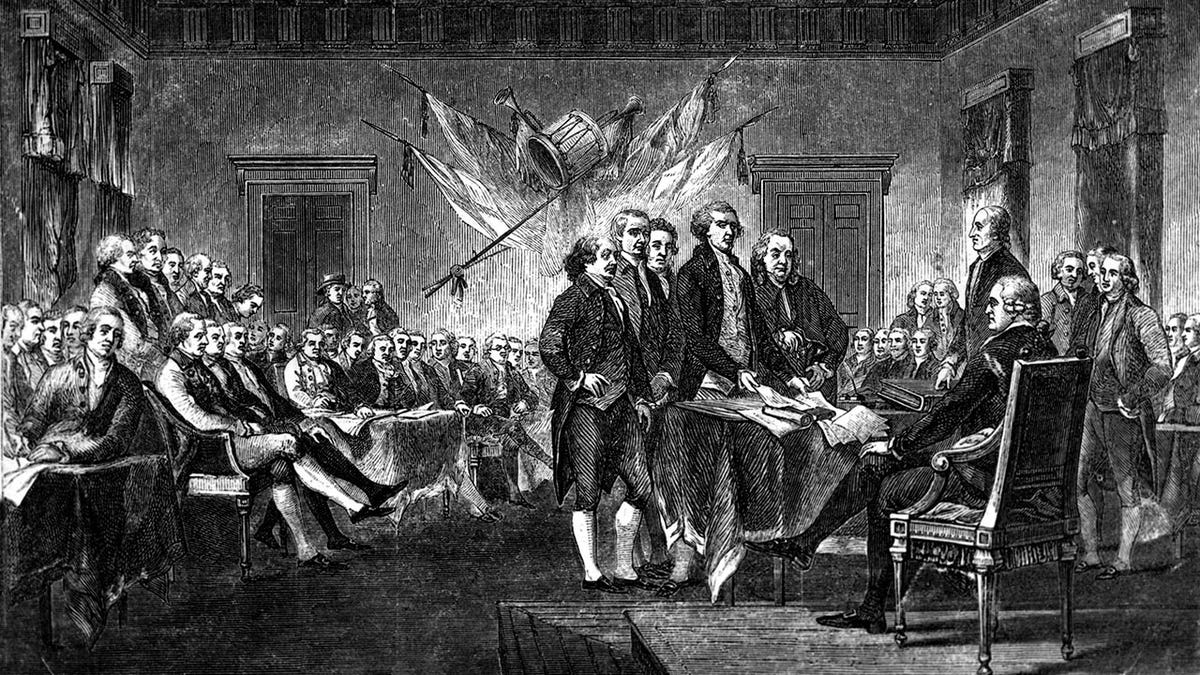
This undated engraving shows the scene of July 4, 1776, when the Declaration of Independence, drafted by Thomas Jefferson, Benjamin Franklin, John Adams, Philip Livingston and Roger Sherman, was approved by the Continental Congress in Philadelphia. The words “all men are created equal” are frequently invoked, but are difficult to define. (AP Photo)
Jefferson and Adams became friends again in their later years, and their friendship was cemented by a voluminous postal correspondence in which both reflected on their incredible role in forging the new nation.
CLICK HERE TO SUBSCRIBE TO OUR LIFESTYLE NEWSLETTER
By the 20th century, his vision of a representative constitutional republic (a revolutionary concept in the 18th century) had become the global standard of governance.
“Time had allowed partisan and ideological passions to recede and a friendship forged in the crucible of war was rekindled through the pen,” writes Adams National Historical Park.
CLICK HERE TO GET THE FOX NEWS APP
Both men died on the same day, July 4, 1826, 50 years to the day they pledged their “lives, fortunes, and sacred honor” together in the Declaration of Independence.
“We can no longer say that there is nothing new under the sun, for this whole chapter of man's history is new,” Jefferson wrote after his election. “The momentous crisis that has emerged of late truly reveals a strength of character in our nation that bodes well for the longevity of our republic.”
For more lifestyle articles, visit www.foxnews.com/lifestyle.

